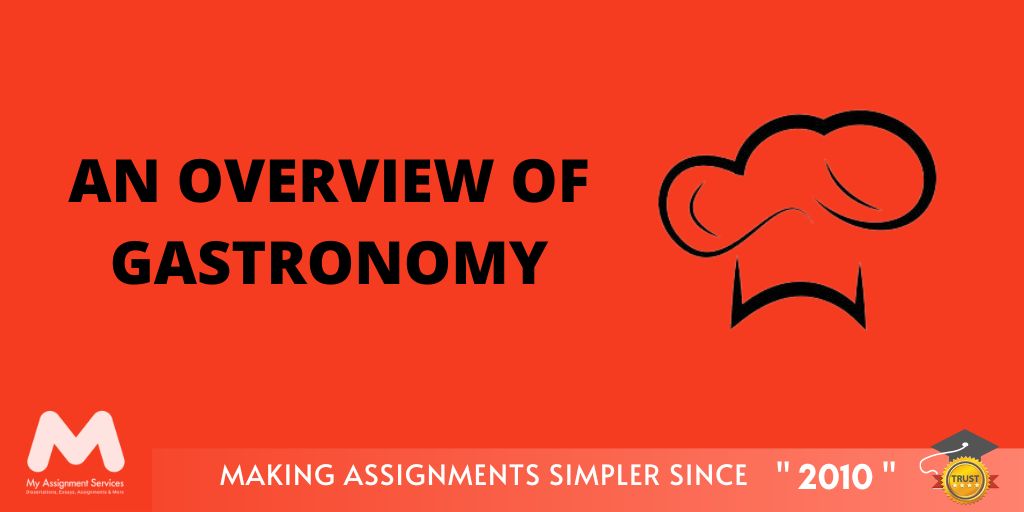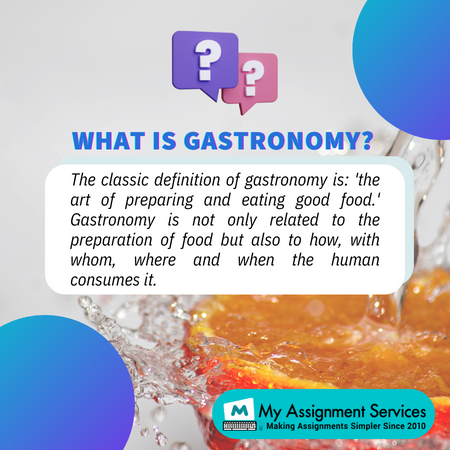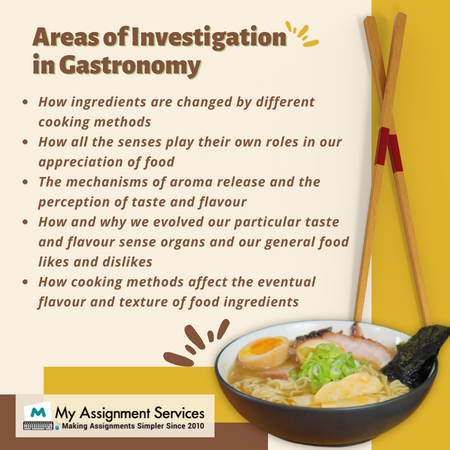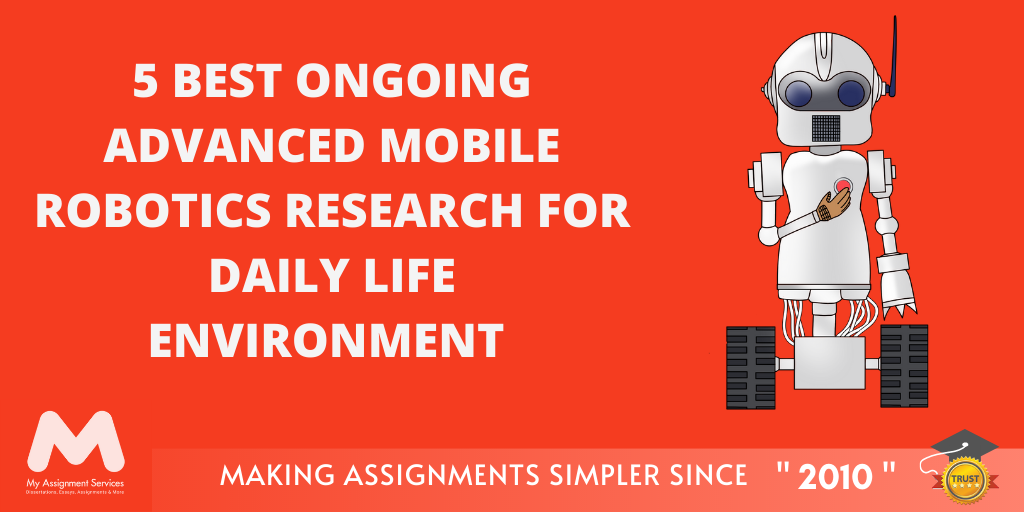
If you are a foodie or love cooking, this term isn’t foreign to you. Gastronomy is a field that goes way beyond culinary arts and dietetics. It is “the intelligent knowledge of whatever concerns man's nourishment.” If you are reading this, there’s a high chance you plan on taking up culinary or gastronomy as your major.
Did you know that the word ‘Gastronomy’ originated in the early nineteenth century? It is derived from the French word ‘gastronomía’ means the art or science of good eating.
Firstly, if you might be planning to take up gastronomy in college, many pose questions like “Are you into culinary arts?” or “Is this the study of the digestive system?” Ironically it is a combination of both. You will study the relationship between food, nutrition and all the cultural aspects of cooking.
On the other hand, you might be in a dilemma in choosing between culinary school and gastronomy. Read forth as I convince you why gastronomy is a field just as advanced and intricate as culinary sciences. We’ll learn the definition and examples of gastronomy in the following sections.

What is Gastronomy?
Initially, Jean Anthelme Brillat Savarin - a French Lawyer in the eighteenth century - said, “tell me what you eat, and I will tell you who you are.” His definition of gastronomy is “the knowledge and understanding of all that relates to man as he eats. Its purpose is to ensure the conservation of men, using the best food possible.”
Additionally, this reference to gastronomy is accurate. Gastronomy is the art and science of deciphering/developing the connection between food, cultures and tradition. It is the study of food originating from different geographies. It focuses on different cooking techniques and how different regions entail distinct tasting food.
You will study diverse food cultures and particularly gourmet cuisine in cultural gastronomy. The different cooking techniques concerned with taste, smell and nutritional value are covered in this discipline. The fascinating thing about gastronomy is that you can go on a fighter adventure. Not an exaggeration; as a gastronomy major, you will prepare a thesis per your food experience.
Monsieur Boulanger set up the first restaurant in 1765. He offered soup selections to customers. His business names "restorative" or "restaurant" are among the first ones to justify the nutritional benefits of all items on his menu. The term restaurant is still in use. - Wikipedia
A few examples of gastronomy include the Ayurveda theory of nutrition - specifically the quality and tone of the taste palates. Molecular gastronomy is another example of applying biochemical knowledge in food preparation. Gastronomy is an extensive field that incorporates as much practical knowledge with theoretical understanding.
If you are a student struggling with your culinary school assignments or your gastronomy thesis, you can get help from our subject matter experts. Get affordable food nutrition assignment help and free guide books emailed to you right as you fill out the enrolment form.
How is Gastronomy Different from Culinary?
Culinary arts and Gastronomy are different academic disciplines, yet they are so closely knit that many confuse them. Here are some distinct points you can use when next time someone asks you the same:
- Culinary arts is the science of cooking and baking. It involves actual cooking rather than studying the ingredients and history.
- However, gastronomy covers a much wider range of interdisciplinary grounds, including food experiences, nutrition, cultural implications of food, and fundamentals of food preparation and plating.
- Culinary knowledge will put you to prepare food of any kind. It is more concerned with the fundamental knowledge of cooking using various ingredients. Be it apple or spinach. A culinary expert will know how to use it to create savoury cuisines.
- You will develop a scientific understanding of food and beverage preparation in gastronomy. It includes all the knowledge from the history to the current development of the product.
- For instance, in culinary arts, preparing the menu is more concerned with the ingredients and the taste the chef wants to create. In contrast, gastronomy is more inclined toward seeking the menu’s nutritional value and how it incorporates the cultural aspect of the recipes.
Fun fact: In the 1800s, tomatoes were used for their medicinal qualities to improve digestion. Hence, medics then developed the recipe for ketchup and made it into ketchup pills. (Source - The Fact Site)
Both disciplines are interlinked with each other through food as the common denominator. Yet, gastronomy is merely a concept without culinary knowledge, and gastronomical knowledge differentiates the different aspects of a dish. One is incomplete without the other. Still, it’s up to your understanding and interest which one is more appealing to you.

What are Some Examples of Gastronomy?
Meanwhile, there are several career options for Gastronomy students. You can sign up for any of these, from food critique to food policy advocacy. Still, entrepreneurship is the new black many prefer urban farming or moving forward with establishing a food brand. These are the most tangible goals, yet there are several other branches of gastronomy like:
- Cultivation is an important gastronomy sub-field. It includes not only growing crops but the study of different processes. Appellation, terroir, and the process of developing bio-chemical fertilisers are a few examples.
- The inspection of quality, taste, texture and the health factors of food items is known as Selection.
- Dietetics and nutrition also fall under the gastronomy Product nutrition value and assigning the right ingredients per the diet of different age groups is crucial for the consumer’s health.
- Food security includes sustainable food choices and the study of the overall environmental impact of nutrition choices.
- Food preparation science - including biochemistry and physics - is called Molecular Gastronomy.
- The knowledge of cooking tools and technology is termed Technical Gastronomy.
Did you know that pineapples take two to three years to grow? Explains them being costly.
As a gastronomy major, you will study, practice and develop your interpretation of Savarin’s idea. Ranging from urban cultivation to international commodity export, gastronomy incorporates the study of it all. It helps shape the notion of food in different cultures and geographies. The role that our senses play in perceiving the different tastes and the nutritional aspects of food is the fundamental knowledge in gastronomy. Hence, it is a holistic discipline at its best.
Culinary or Gastronomy students must deliver their assignments regardless of the practical knowledge involved in the field. If you face issues with your assignment, fill out the enrolment form to get affordable yet high-quality Food Science Assignment Help from industry experts. Get access to free academic resources. Enrol today!
Related Study Materials
Our Experts can answer your Assignment questions instantly.
Ask Question0 Comment
Get It Done! Today
1,212,718Orders
4.9/5Rating
5,063Experts













Loved reading this Blog? Share your valuable thoughts in the comment section.
Add comment